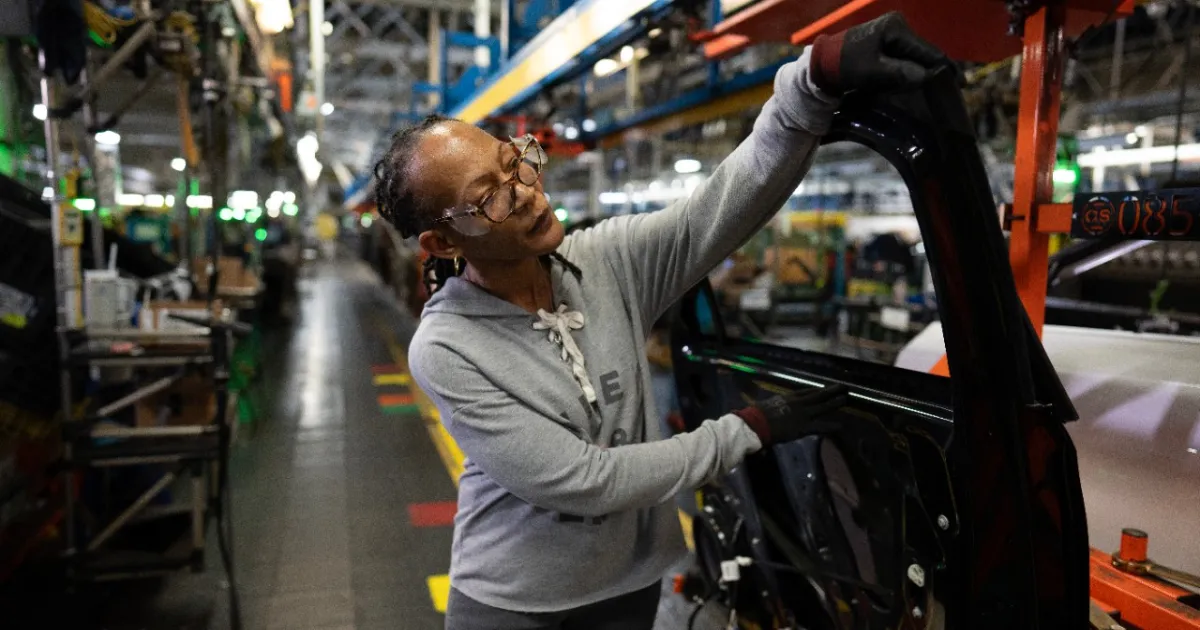GM announces a $4 billion investment in U.S. plants

General Motors (GM) announced on Tuesday a $4 billion investment across three U.S. manufacturing plants to increase production of both gas-powered and electric vehicles. The move comes as former President Donald Trump’s proposed 25% tariff on imported vehicles threatens to reshape the economics of the American auto market.
While GM did not clarify how much of the investment had already been allocated or previously announced, the timing signals a strategic effort to protect its U.S. operations and possibly gain political goodwill amid trade policy uncertainty.
A Strategic Hedge Against Tariffs
Trump’s tariff agenda, which includes the proposed 25% levy on imported vehicles and auto parts, poses a major cost threat to automakers reliant on global supply chains. GM CEO Mary Barra previously stated that such tariffs could cost the company $4 billion to $5 billion in 2025 alone.
In addition to the vehicle tariff, Trump has floated or enacted other import taxes, such as a 50% duty on steel and aluminum and 10% tariffs affecting various U.S. trading partners. These fluctuating and often unclear policies have created significant challenges for companies trying to manage global operations and cost structures.
GM's investment appears to be, at least in part, a response to this policy volatility — an attempt to localize production and minimize potential tariff exposure.
Where the Money's Going
The $4 billion investment will be directed toward:
- Orion Assembly (Orion Township, Michigan)
- Fairfax Assembly (Kansas City, Kansas)
- Spring Hill Manufacturing (Spring Hill, Tennessee)
Investments in the Orion and Fairfax facilities were part of GM’s 2023 contract with the United Auto Workers (UAW), but Spring Hill was not mentioned in that agreement. GM said this announcement is in addition to the commitments made in that labor deal.
While GM did not explicitly state that it is relocating production from overseas, the decision to start building the gas-powered Chevrolet Blazer in Spring Hill — previously produced in Mexico — is one of the few examples of reshoring.
Global Footprint Still Strong
Despite this major investment, GM's global production remains extensive. In 2024, it produced nearly 1 million vehicles in Canada and Mexico and imported over 460,000 vehicles to the U.S. from countries like South Korea and China. These include popular models like the Trax compact SUV and the Buick Envision.
So far, GM has not signaled any plans to significantly cut production abroad, suggesting that its U.S. investments are a supplement — not a substitute — for its international manufacturing base.
UAW Applauds, Sees Validation of Tariffs
The United Auto Workers union welcomed the announcement as evidence that the tariff threat is prompting real investment in American jobs.
“While other companies drag their feet, GM is showing that strategic auto tariffs work,” said UAW President Shawn Fain. “This is just the beginning.”
Competitive Pressures and Political Risk
GM's move may also be a competitive signal to peers like Ford and Stellantis, which have yet to make comparable U.S. investment announcements in the face of Trump’s trade rhetoric.
While GM remains the largest automaker by U.S. sales — with 2.7 million vehicles sold domestically in 2024 — it is not immune to tariff pressures. Even its U.S.-built vehicles rely on imported parts, which are also subject to Trump’s proposed tariffs.
Ford, for instance, has said it expects to increase U.S. vehicle prices by up to 1.5% in the second half of 2025 due to rising import costs.
A Calculated Political and Economic Play
GM’s investment is both a manufacturing decision and a calculated political maneuver. As tariffs loom, building cars in the U.S. could help GM avoid billions in costs — and potentially earn favor in a regulatory environment that rewards domestic production.
With this $4 billion move, GM is staking its position not just in the American car market, but in a broader economic debate about trade, labor, and the future of U.S. manufacturing.





